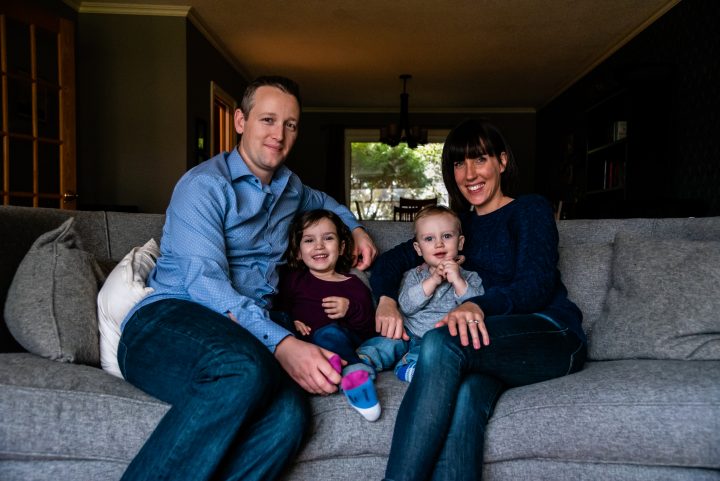Some parents of immunocompromised children are calling for the province to find ways to protect their kids when they go back to school amid the novel coronavirus pandemic.

At a virtual press conference held by the NDP Friday, two mothers shared their concerns, saying there’s not enough in place now to accommodate vulnerable students and teachers.
Both mothers are part of Saskatchewan Immune Compromised Families, a group of students and teachers concerned about reopening.
Krysta Shacklock started the group. Her five-year-old daughter is recovering from cancer, and has a “dangerously low” immune system, she said. She won’t be attending in-person classes for her protection.
“My concern is they’re missing out on socialization and that development that they really need at that age,” said Shacklock.
“Everything that we’ve been told with social distancing and hand washing to keep adults safe has kind of been thrown out the window when it comes to our kids and when it comes to our teachers.”
She said she hasn’t received much of a response from the ministry of education about her concerns.
Mom Kath Stevenson said she’s also worried. Her son has down syndrome and a primary B cell immunodeficiency, putting him at risk.

Get daily National news
She wants the province to come up with something to help protect students, but also teachers who might be immunocompromised or have family or loved ones who are.
She said she’s had discussions with the private school her son attends about what accommodations could look like.
“We find a teacher who has an immune issue … so that they experience the same sense of risk as the children,” she explained.
“We limit the group to probably no more than six, and that we find a space that has good ventilation, ability to provide distancing, ability to disinfect.”
An online petition calling for safe access to education has garnered close to 1,200 signatures as of 4 p.m. Friday.
In an email to Global News, the province’s ministry of education said “medically fragile” students will have supports to address them on a “needs-base model.”
“Schools have been asked to increase sanitation measures and continue to promote proper hygiene practices,” wrote media relations consultant Chris Hodges.
“This includes the availability of hand sanitizer wherever possible, establishing clear protocols for bringing supplementary school materials such as backpacks and school supplies in and out of schools, and minimizing contact among students and staff – as much as possible.”
Hodges said school divisions will work with their local medical health officer to address immunocompromised students’ needs, and will have remote learning options in place for those unable to attend school for medical reasons.

Questions about COVID-19? Here are some things you need to know:
Symptoms can include fever, cough and difficulty breathing — very similar to a cold or flu. Some people can develop a more severe illness. People most at risk of this include older adults and people with severe chronic medical conditions like heart, lung or kidney disease. If you develop symptoms, contact public health authorities.
To prevent the virus from spreading, experts recommend frequent handwashing and coughing into your sleeve. They also recommend minimizing contact with others, staying home as much as possible and maintaining a distance of two metres from other people if you go out. In situations where you can’t keep a safe distance from others, public health officials recommend the use of a non-medical face mask or covering to prevent spreading the respiratory droplets that can carry the virus.
For full COVID-19 coverage from Global News, click here.







Comments
Want to discuss? Please read our Commenting Policy first.